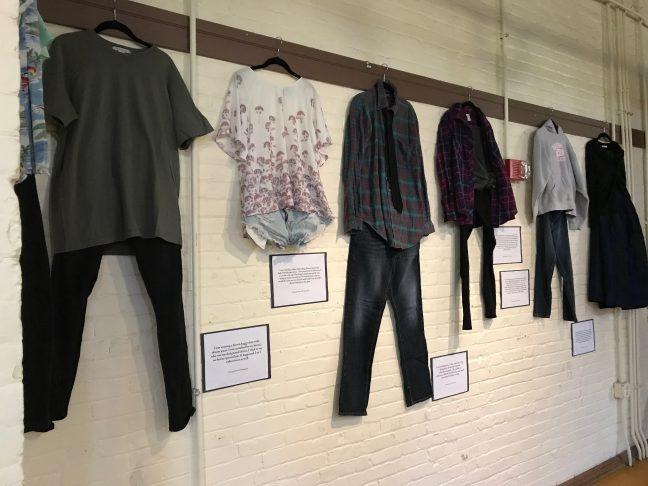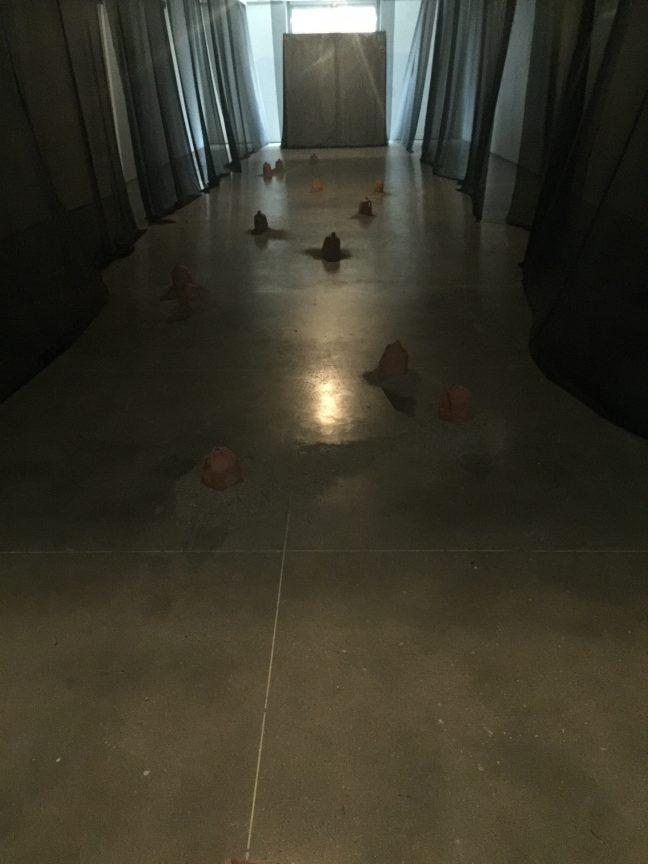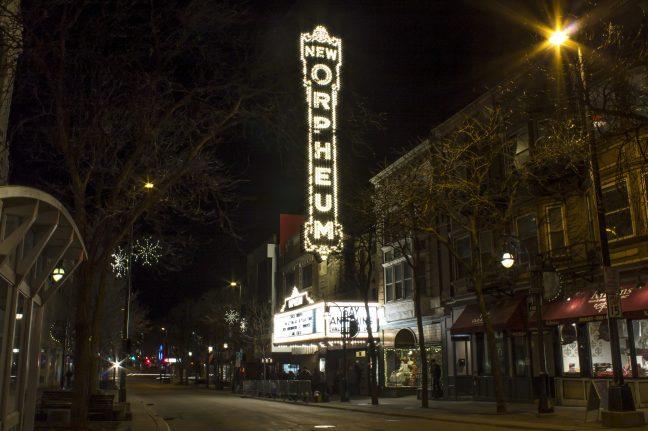In a rented space in East Madison, Casey Foubert slouches over his guitar, recording a track for his solo album. The small room where he plays is laden with musty carpets and filled with biting winter air that has seeped in through the cracks and pipes. The room is full of other bands’ equipment: two drum sets and half a dozen amps. At the end of a passageway a compilation of reggae and early 2000s rock music can be heard into the night from the another office space occupied by a woman who bakes.
Foubert’s only personal equipment are his guitar, his mics and a four-track cassette player he uses to record.
His shared practicing and recording space is indicative of the artist Foubert once was: a “sideman,” a collaborator, a band mate. Foubert has been working with other musicians since high school. He has collaborated with artists including TW Walsh and Dave Bazan of Pedro the Lion, Richard Swift of The Shins and acclaimed indie artist Sufjan Stevens.
Although he still dabbles in collaborations from time to time, Foubert has started to focus more on making his own music and developing his personal aesthetic. Four years ago, Foubert uprooted his blossoming musical connections in Seattle and moved to Madison so his wife could pursue a Ph.D. in education at University of Wisconsin. Now Foubert has found his niche in the Wisconsin music scene, performing locally, working remotely with old music collaborators and now producing his own solo album.
Foubert thinks of his move to Madison as a sort of sabbatical, a means to reach his goal of self-development. His sound as a musician used to be largely defined by whom he was collaborating with and what they were looking for; now he is searching for a more personal aesthetic. Foubert does not categorize his work by an end product, but rather by his music-making process.
Since the change of scenery, Foubert has assimilated to great success into the music zeitgeist of Madison and Wisconsin as a whole. Just more than a year ago he visited Justin Vernon, of Bon Iver, in Eau Claire for a week to collaborate with Stevens on his upcoming LP, Carrie & Lowell. Foubert also works remotely from his home studio with old collaborators by sending rough mixes back and forth. And up until his last performance there Dec. 30, he played a weekly Tuesday night show at Mickey’s Tavern, where he developed relationships with local artists and the venue owners.
Now that his show at Mickey’s is over, Foubert is trying to work on his solo projects as much as he can while balancing a carpentry job and a young child. This new, more personal phase in his career diverges from his pre-Madison living of helping people out with their records and being a sideman on tours.
“I decided to start turning touring stuff down — unless it was something I was really interested in — and stay home as much as possible, write songs and sing as much as possible and see what happened,” Foubert said.
He works in simple melodies, focusing on how the lyrics feel in his mouth, how his words invoke certain imagery and how he can communicate meaning with as few words as possible, he said. He starts with a clean beat and adds one or two elements that defy that rhythm, and also feels weird and distorted.
Even on a simple ballad, he adds an element of texture by recording on an old four-track cassette recorder.
“The four-track thing is really intimate and super fuzzy, like a Polaroid camera,” Foubert said. “It adds a certain patina, but obviously it has certain drawbacks, I don’t have as much control.”
The same antiquated piece of equipment got Foubert into making music in high school, when he and his friend and long time collaborator, Yuuki Matthews of The Shins, would trade them. When Foubert first started making music in high school, he said his goal was to be an underground musician, citing his favorite band at the time, Fugazzi. He wanted to produce and tour, staying away from the limelight. Then at the age of 22, touring with Bazan, he realized he had already attained his goal and reassessed.
“Now that I am older and my priorities have changed in life, and I have explored my own song writing, my goal is to develop a relationship with a working audience that likes my music and to maintain that relationship for a long time.”
In studio and at home, Foubert works to build his own audience base while still making music that challenges him. His solo album, due out in March under the pseudonym Arthur Casey Foubert, will work to establish him as an integral piece of the Madison music scene and solidify his personal identity as an artist.



























